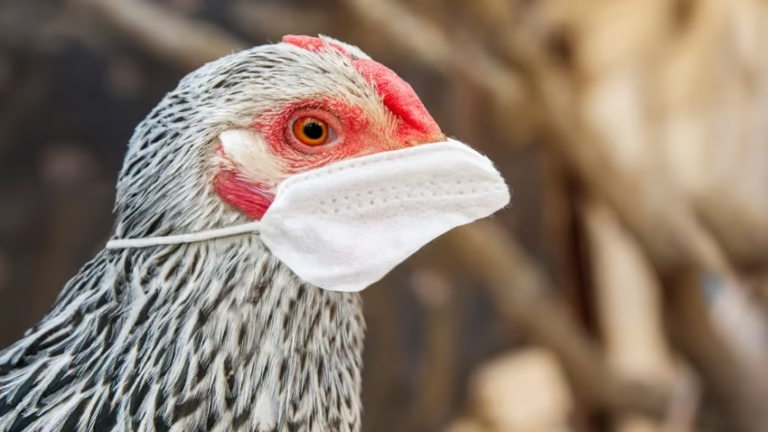Bird Flu Outbreak: Third Case Confirmed in Maryland, Measures Underway to Contain Spread
BALTIMORE – The Maryland Department of Agriculture (MDA) has confirmed that a flock of chickens at a second farm in Caroline County has tested positive for Bird Flu, also known as Avian Influenza. This marks the third reported case in the state, highlighting the spread of the virus among poultry farms in the region.
The newly affected farm is located near another Caroline County farm where Maryland’s first Bird Flu case of the year was identified on January 10. Just a few days later, a second case was reported in Queen Anne’s County on January 14. These outbreaks have prompted swift action from the MDA to prevent further transmission.
Quarantine and Depopulation Measures
In response to the positive test results, MDA officials have imposed a quarantine on the affected areas to restrict movement and contain the virus. The infected birds will be depopulated—a necessary step to prevent the spread of Bird Flu to other farms. Officials have assured the public that the birds from these flocks will not enter the food system, thereby eliminating any risk of contaminated poultry products reaching consumers.
This outbreak marks the first instance of Bird Flu at a Maryland commercial poultry operation since 2023, signaling a resurgence of the virus within the state’s poultry industry. Similar incidents have also been reported recently in neighboring states, with two commercial poultry operations in Kent County, Delaware testing positive for Bird Flu within the past month.
Understanding H5N1 Bird Flu
Bird Flu, or Avian Influenza, is a highly contagious respiratory virus that primarily affects birds but can also be transmitted to humans in certain conditions. According to the Centers for Disease Control and Prevention (CDC), the virus spreads among birds through nasal and eye secretions and can contaminate surfaces such as equipment, clothing, and shoes.
Wild birds, including chickens, ducks, turkeys, and geese, are commonly affected by the virus. When these infected birds come into contact with domestic poultry, the virus can spread rapidly through flocks, causing significant health and economic impacts on the poultry industry.
Human Cases and Risk Assessment
Though primarily a bird disease, Bird Flu has been known to infect humans. CDC data shows that as of 2024, there have been 67 reported human cases in the United States, resulting in one death. The fatality occurred in Louisiana, where a resident over the age of 65, who had underlying health conditions, succumbed to the virus after being hospitalized. Despite these instances, the MDA reassures that the risk of transmission from birds to the general public remains low.
The symptoms of Bird Flu in birds include a lack of energy and appetite, decreased egg production, nasal discharge, coughing, sneezing, and sudden death without clinical signs. These signs serve as critical indicators for poultry farmers to identify potential outbreaks early and report them to authorities.
Reporting and Prevention
The MDA urges poultry farmers and the public to remain vigilant. Any suspected cases of highly pathogenic avian influenza (HPAI) should be reported to the Maryland Department of Agriculture at 410-841-5810. This prompt reporting can aid in the swift containment and prevention of further spread.
Economic Impact and Egg Prices
The Bird Flu outbreak has had a profound impact on the poultry industry, particularly on egg production. More than 20 million egg-laying chickens have died in the U.S. during the last quarter, representing the worst toll on the nation’s egg supply since the onset of the outbreak. This has significantly contributed to the rising egg prices observed at grocery stores and restaurants.
Despite this, most poultry farms in Maryland focus on meat production rather than eggs. State Veterinarian Jennifer Trout emphasized that poultry products in the market are safe for consumption. “What you go and buy at your grocery store is safe to eat because any bird that tested positive isn’t entering the food chain,” Trout assured, aiming to alleviate public concern about the safety of poultry products.
The recent Bird Flu cases in Maryland highlight the need for continued vigilance and prompt action to safeguard the poultry industry and public health. With effective quarantine and depopulation measures, the MDA aims to control the spread of the virus and minimize its impact on the state’s poultry sector.




